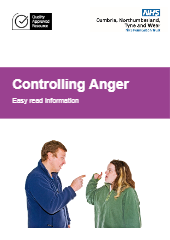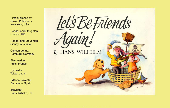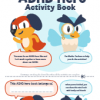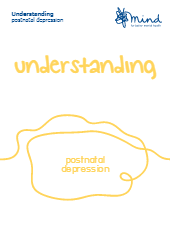Keeping your Cool: Advice for Parents on Managing Stress and Anger Guide
This resource offers guidance to parents on managing stress and anger, providing practical advice and tips from professionals and experienced parents. It helps identify stress points and encourages coping strategies to improve parenting and child relationships. The booklet covers various aspects of stress, its impact on parenting, and offers techniques for maintaining control and fostering a positive environment.
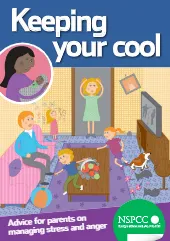
Anger Mangement Toolbox
This resource provides a comprehensive guide to managing anger by debunking common myths, outlining effective strategies, and offering practical tools. It includes techniques such as time-outs, relaxation exercises, and positive self-talk to help individuals control their anger and prevent aggressive behaviour. The guide also emphasises the importance of understanding triggers, recognising early warning signs, and practising healthy communication and coping skills.

Managing Anger to Contain Abusive Behaviour
This factsheet provides guidance for individuals struggling with anger management and those who have exhibited violent or abusive behaviour towards their partners. It explains the nature of anger, its impact on relationships, and offers practical strategies to manage anger in a healthy way. The resource emphasizes the importance of recognising warning signs, understanding underlying emotions, and seeking support to prevent abusive behaviour.
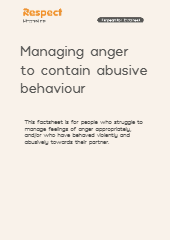
Understanding Anger Booklet
This booklet provides an in-depth explanation of anger, including practical suggestions for managing it and where to seek support. It offers insights into the nature of anger, its triggers, and the physical and mental signs to watch for. Additionally, it includes strategies for controlling anger, long-term management techniques, and advice for friends and family to support someone dealing with anger issues.
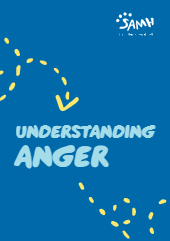
Coping with Anger Workbook
This workbook provides practical guidance on understanding and managing anger. It covers the causes of anger, recognising personal triggers, and the physical and mental signs of anger. The workbook includes various techniques to control anger, such as deep breathing, pleasant imagery, and counting backwards, and offers strategies for long-term anger management and conflict resolution. The workbook also emphasises the importance of self-reflection and coaching to improve anger management skills.

Guide to Anger Management for Parents
This guide provides parents with practical strategies to manage their anger using a cognitive therapy approach. It explains how thoughts, emotions, and behaviours are interconnected and introduces the ABC model (situation, thoughts, emotions) to help parents recognise and alter negative thought patterns. The guide includes a counselling session example to illustrate these concepts and offers exercises for parents to practice anger management techniques in everyday situations.

Why Do I Get So Angry? A Wormhole Back in Time Explanation Sheet
This resource explains how past traumatic experiences can trigger intense emotional responses in the present, often leading to feelings of anger or fear. It highlights the body’s instinctive reactions to perceived danger and the importance of feeling seen and heard to build a sense of safety. By understanding these responses, individuals can work towards healing and managing their emotions effectively.

Anger Moodjuice Self-help Guide
This workbook helps individuals recognise and manage their anger by understanding its causes and triggers. It provides practical strategies such as challenging unhelpful thoughts, practising relaxation techniques, and improving problem-solving and communication skills. The guide aims to support individuals in developing healthier ways to cope with anger, enhancing their overall well-being and relationships.

Anger Free Coping Strategies: 1-page Information Sheet for Adults
This resource provides practical strategies for managing anger, such as taking time out, using distraction techniques, and employing silly humour to gain perspective. It also emphasizes the importance of relaxation techniques, positive self-talk, and assertiveness to prevent anger from escalating. By identifying triggers and early warning signs, individuals can better manage their responses and maintain control in challenging situations.
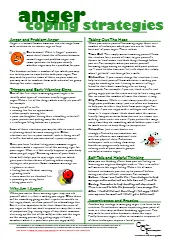
Anger Management for Dummies Book
This book offers practical advice and techniques for understanding and managing anger effectively. It covers the causes and triggers of anger, provides strategies for reducing and controlling anger, and includes exercises to help readers develop healthier emotional responses. The guide aims to improve personal relationships and overall well-being by teaching how to handle anger constructively.
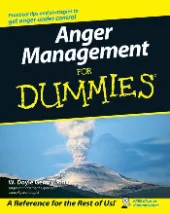
Anger Management Workbook to Addreess Anger Management
This workbook offers structured sessions to help individuals understand and manage their anger through techniques such as relaxation, identifying triggers, and positive self-talk. It provides practical exercises for recognising the physical signs of anger, understanding the costs and benefits of anger, and developing problem-solving skills. The workbook also emphasises relapse prevention and effective communication strategies to maintain long-term anger management.
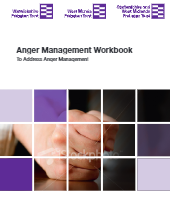
Controlling Anger: Easy Read Information
This easy-to-read booklet helps individuals understand anger, its triggers, and physical and emotional signs. It provides practical tips for managing anger, such as relaxation techniques and recognising negative thoughts. Additionally, it offers information on where to seek further help and support for anger management.
